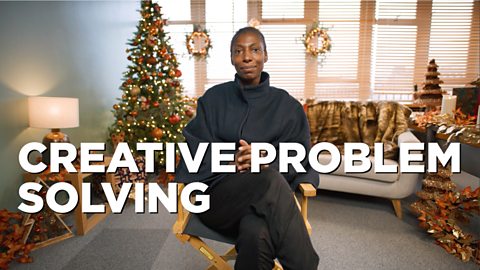Shami:
I'm Shami. I'm 15 years old, from Stoke-on-Trent
Lewis:
I'm Lewis. I'm 15 years old and I'm also from Stoke-on-Trent.
Shami:
We've come to a factory in Stoke that was revived decades ago, becoming a staple of the local community. We're here to meet someone who turned her creative vision into a successful long running business.
Emma:
I'm Emma Bridgewater. I'm a ceramicist and founder of a British ceramics company, which is based in Stoke-on-Trent in Staffordshire.
You probably already know about the product, but I'm going to talk to you about what it takes to grow a business.
Understanding how to build a business is just part of the journey, you need to have passion to see you through the hard times and the better your planning, the stronger you'll be.
Say, if I have an interest, how do I start a business with that?
The very first thing to do is see if you can find a way of getting your idea in front of people and see if they respond to it. So, for example, I had a revelation that I should be making some colourful pottery, the kind of stuff my mum might like, and I was able to make some early samples and I experimented with the decorating, glazed them myself, not very well, and tried selling them on the market stall.
The experience of seeing customers coming, rushing towards it, they were immediately engaged with it.
It was incredibly exciting. It was real rush of blood to my head and seeing the reaction made me know that it was worthtrying to form that into a business.
So I needed to think about how I was going to price them. And then the crucial thing is how you're going to brand that idea,because your only security when you've got a sort of interesting idea, is making it yours.
So putting my name on it, that's kind of the ultimate way of saying
I'm going to stand up for my stuff. The slip house through there, that's phase one, where they prep the clay.
This is phase two. And here we've got all the moulds in which you pour the liquid clay in. And when you do the magic moment of cracking the mould, you get these sort of things out.
This is completely traditional method. And what it means is instead of having lots of machinery, you've got lots of skilled people.
The great asset here is the people and the skills.
Lewis:
So how do I go about building a business?
Emma:
Whatever your business proposition, it's got to be unique. It's got to be appealing to a lot of people.
And you make a business plan to look at how many of those mugs you're going to have to sell to pay your bills and cover your costs.
Writing your first business plan, that sort of shows you what all your issues are going to be controlling your costs.
How are you going to be able to afford to get some help?
Who's going to drive the van? Me.
When am I going to do the designing? Long after midnight.
You know, to begin with, it's crazy busy.
Lewis:
So what if I didn't have this big idea? How would I start running the business?
Emma:
I think one of the most useful things if you think you might be someone who'd like to run their own business is go and work foranother interesting business.
What job experience you have can really help.
So actively seeking some job experience in an interesting creative company.
If you think that's the kind of life you'd like a business you'd like to make.
I also think it really helps if you stretch your imagination as you're playing with ideas.
You said you like this room when you walked into it.
You try and imagine if I had a studio. I'm not sur what I'd be making it yet, but I'd like it to look like this.
So you start to actually and imagine your business when you're when you're in that hunting stage.
Shami:
How do you keep your business going? How do you keep motivated?
Emma:
Profit is important, but a real passion for what you're doing and why you're doing it, will be what keeps you engaged in a business and keeps your customers coming back.
If I run out of steam and get exhausted coming here to the factory. I don't know if you felt it, but going through the factory, it's a sort of big co-operative that each of those workshops is feeding on to the next one,to the next one.
And at the end there's customers really excited.
There's a lot of kind of positivity in that, which I think that's more valuable than anything else.
Lewis:
I've realised that while running a business it isn't really easy, especially a self-made business.
Shami:
Something I've learned today is having a set structure and a plan helps you to expand and grow your business.
Ceramicist and entrepreneur Emma Bridgewater talks to two students about business planning and the secret to owning a long running successful business.
Emma talks about how to grow a business, and how she got into ceramics and pottery making.
She takes the two students on a tour of the factory where they learn about the different processes of making a pottery product.
Growing a business is something many entrepreneurs think about. Emma share her tips and advice on the importance of being unique and appealing to many people, and how she keeps motivated.
This short film is from the BBC Teach series Lessons in Business
Teacher Notes
Possible talking points:
Business:
- Emma suggests if you have an idea for starting a business that you ‘get it in front of people and see if they’re into it’. What could this be called? Why is it important?
- Once Emma realised her idea was popular she felt that the ‘crucial thing’ was ‘how you’re going to brand that idea’. Why is branding so important?
- For Emma branding including putting her name to her product – what are the benefits of this?Emma talked about the importance of a business plan – why can a business plan be helpful? What should be included in an effective business plan?
- Emma says: ‘profit is important but a real passion for what you’re doing and why you’re doing it is what will keep you engaged in the business’. To what extent do you agree that passion is more important than profit?
- What is Emma’s USP?
- How does Emma’s business support the local community?
Careers
- Emma Bridgewater is an entrepreneur – what does this mean?
- What does it take to be a successful entrepreneur? What are the challenges?
- If you don’t have an idea for your own business but are interested in becoming an entrepreneur, Emma advises working for another interesting business – why is this good advice?
- Emma suggests ‘stretching your imagination’ and ‘hunting for an idea.’ How would you do this?
Follow on tasks - You could ask students to:
- Business – create a sample business plan for Emma’s business considering the associated costs and benefits of usinglocal skilled trades people, alternatively students could create their own business plan for their own original idea. Students could also look at Emma’s website to explore costs and possible profit margins and consider how she has used branding to define her product.
- Careers: – research other entrepreneurs and their careers paths – what are common challenges faced and how were they overcome?
- Students can also explore jobs that use Business by viewing Bitesize Careers business job profiles
Curriculum Notes
- This short film is to help stimulate discussion on the following topics: careers, resilience.
- It is relevant to subjects such covered in careers lessons such journalism or media production.
- Most suited to 14-16-year-old pupils across the UK in developing their understanding of soft skills needed for successful careers.
- In England, Northern Ireland and Wales it is relevant to GCSE business.
- In Scotland it is linked to National 4 Business studies.

More from the series Lessons in Business:
Jacky Wright - The importance of collaboration. video
Chief technology officer Jacky Wright talks to two students about collaboration and communication in the workplace.
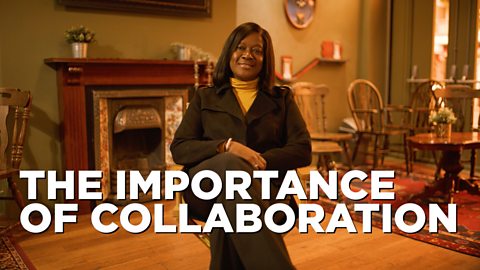
Asma Khan - Learning resilience. video
Chef, author and restaurateur Asma Khan speaks to two students about building resilience.
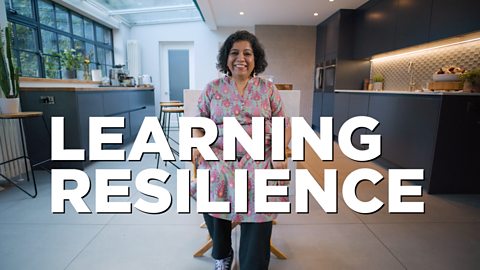
Dorothy Byrne - Fighting for your voice. video
Journalist and President of Cambridge College Dorothy Byrne talks to two students about making your voice heard and standing up for what you believe in.
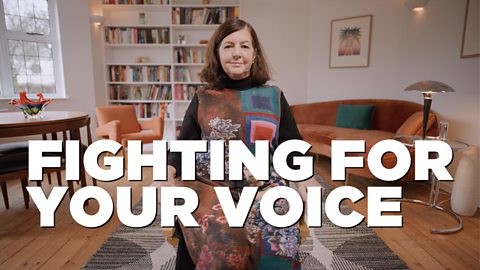
Indra Nooyi - Using your moral compass in business. video
Entrepreneur, author and former CEO of PepsiCo Indra Nooyi talks about integrity in business.
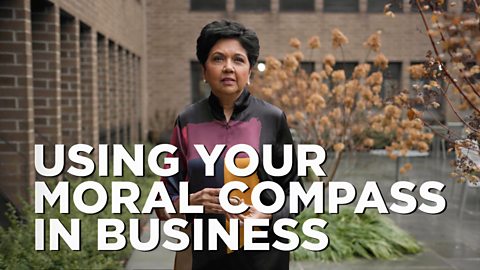
Jo Malone - Thinking like an entrepreneur. video
Perfumer and entrepreneur Jo Malone talks to two students about thinking as a leader and entrepreneur.
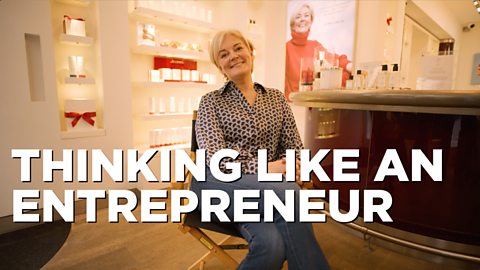
Sereena Abbassi - Listening to other perspectives. video
Equity and inclusion expert Sereena Abbassi talks to two students about listening to different people's perspectives.
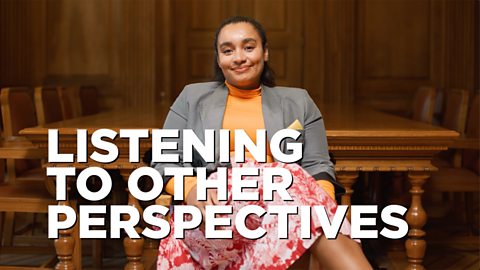
Dame Sharon White - Creative problem solving. video
Chair of the John Lewis Partnership Dame Sharon White talks to two students about problem solving.
